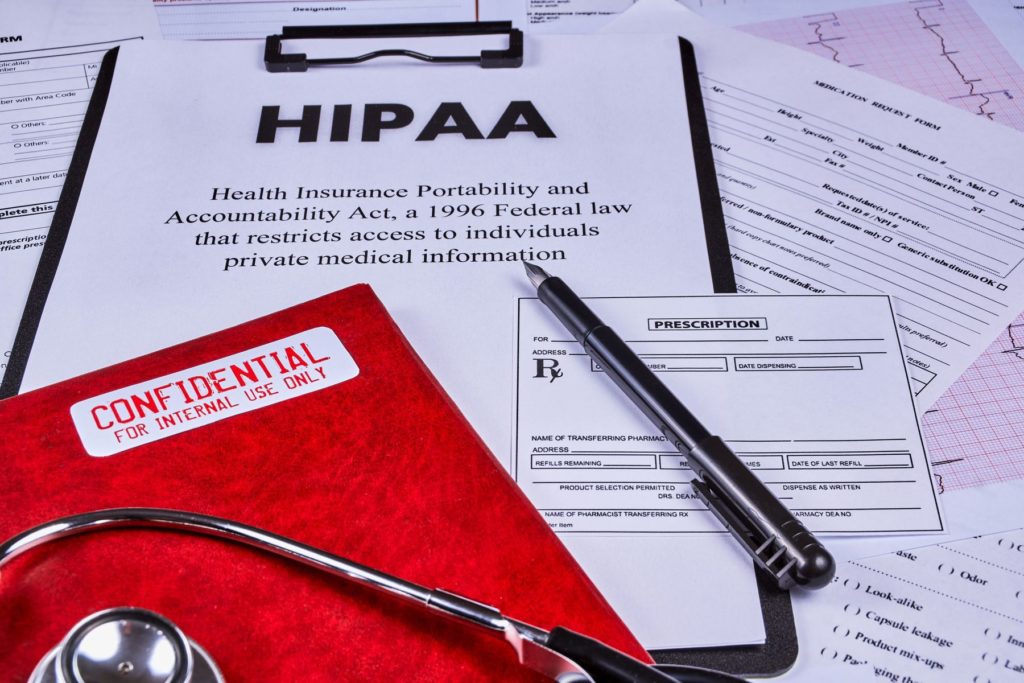In 1996, Congress approved the Health Insurance Portability and Accountability Act (HIPAA) to address healthcare challenges and improve administrative simplicity. HIPAA’s “administrative simplification” requirements require compliance in three main areas: electronic transactions, security, and privacy.
All healthcare providers who electronically file claims are required to abide by HIPAA standards, even if a billing company files the claims on their behalf. HIPAA compliance is also necessary for clearinghouses and health plans.
HIPAA: What Is It?
A legislative measure known as the Health Insurance Portability and Accountability Act (HIPAA) was passed in 1996. The portability of health insurance was one of the many other topics covered by HIPAA. The privacy and security standards of HIPAA, however, are typically what make it most well-known.
2009 saw the enactment of the American Recovery and Reinvestment Act of 2009 (“ARRA”), which included revisions to the HIPAA Privacy and Security Rules. This act was known as the Health Information Technology for Economic Clinical Health Act (“the HITECH Act”).
HIPAA lawyer
Depending on the type of breach (privacy infringement, for example) and the potential consequences (money loss), a personal injury attorney will likely handle HIPAA violations. However, the attorney must be knowledgeable about alternative legal methods for pursuing a HIPAA violation suit, as there is no private right of action under the statute.
HIPAA Attorney: HIPAA Privacy Regulations 101
A series of laws about public health is known as the Health Insurance Portability and Accountability Act of 1996 (HIPAA). These regulations address a lot of topics, including privacy. The Act’s Title II contains the HIPAA Privacy Rules.
National guidelines protecting patients’ rights are established by the HIPAA Privacy Rules. They established a nationwide standard for the security of patient medical data. These guidelines consist of the following:
- Medical records,
- Electronic health records,
- Private health information (PHI),
- Individual medical data, health insurance;
- Financial or electronic transactions related to healthcare.
The usage and disclosure of a patient’s health information to insurance providers, clearinghouses for healthcare, commercial partners, and other medical professionals is governed by these regulations.
Notifying patients of privacy policies is a requirement for healthcare organizations and providers. The privacy practices of the organization are covered in this notice.
It needs to list the authorized releases of their private health data. However, it must also mention the privacy safeguards that keep patient information safe. However, an essential component of the healthcare system is patient confidentiality. For instance, a psychotherapy practice ought to let clients know how it protects their mental health data. The office may have breached HIPAA regulations by sharing this information without the patient’s consent or in violation of these regulations.
HIPAA compliance is only required for covered entities. However, patients should verify if the company or healthcare provider they wish to sue is one of the covered entities. In addition, a covered entity is defined as follows by the Centers for Medicaid and Medicare Services:
- A healthcare provider who uses electronic means for certain transactions
- A clearinghouse for healthcare
- A health scheme
HIPAA Attorney: Security Under HIPAA
Protecting electronic protected health information (EPHI), which is frequently present in billing systems or electronic health records (EHRs), is the goal of the HIPAA Security Rule. A HIPAA Security Officer must create and manage policies and procedures, supervise compliance, and teach staff members.
The rule requires physicians to complete a HIPAA Security Risk Analysis and address any deficiencies, ensuring effective institutional risk management.
Why File a HIPAA Complaint with a Lawyer?
A lawyer may be necessary before submitting a HIPAA complaint for various reasons, depending on the specific complaint.
Most of the time, people have identified a privacy issue they wish to resolve to ensure its resolution and avoid future issues. In certain situations, a lawyer’s complaint to the covered entity may be given priority over a public complaint.
A lawyer can assist in filing a complaint with the HHS Office for Civil Rights, as the investigation and action taken depend on the complaint’s details and language.
What kind of lawyer handles HIPAA violations might not matter when submitting a complaint of this kind. However, the lawyer to be hired depends on the nature of the harm a person seeks compensation for.
For example, if someone has experienced financial harm, hiring a consumer law specialist may be more beneficial, while hiring a medical malpractice attorney may be more beneficial.
Questions & Answers on HIPAA Attorney:
Who has to abide by HIPAA rules?
The Privacy and Security Rules under HIPAA apply to all “covered entities.” All health plans, healthcare providers who send patient data electronically through standard transactions, and healthcare clearinghouses (which include billing businesses) are considered covered entities. The regulations refer to these organizations as “covered entities.” The HITECH Act, however, extended HIPAA’s application to these businesses’ business affiliates.
What are the individual’s HIPAA rights?
The HIPAA Privacy Rule permits individuals to request restrictions on the use and disclosure of their protected health information. Additionally, the person has the right to seek secret communications or the use of an alternate method, such as mailing correspondence to the person’s office rather than their home, in order to communicate protected health information.
Subject to certain limitations, people can also request modifications to their protected health information and have it inspected, copied, and updated.
What is required by the HIPAA security rule?
According to the rule, to detect and mitigate threats to electronic protected health information, covered businesses must perform a risk analysis. In general, businesses must implement administrative protocols, physical security measures, and technical security services to ensure the confidentiality, integrity, and availability of patient data. To prevent unauthorized access to patient data, covered businesses must also employ technical security measures under the HIPAA Security Rule.
